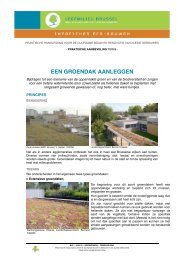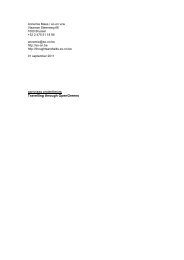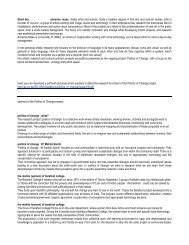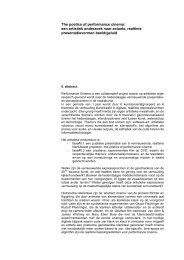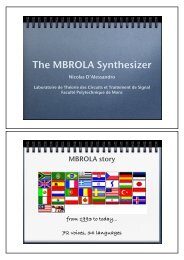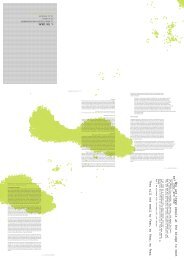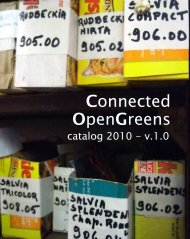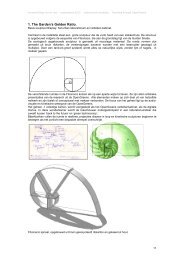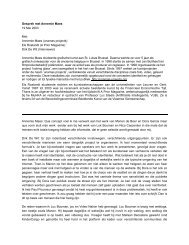MANIFESTO
MANIFESTO
MANIFESTO
You also want an ePaper? Increase the reach of your titles
YUMPU automatically turns print PDFs into web optimized ePapers that Google loves.
5.<br />
as part of the market access commitments of the Uruguay Round of<br />
GATT (Article XI), along with rules in the Agreement on Agriculture,<br />
countries were forced to remove all bans, or quantitative restrictions, on<br />
imports and exports. Developing countries had traditionally used import<br />
restrictions to protect their domestic food production and producers<br />
against a flood of artificially low-priced imports; now this mechanism<br />
has been stripped away. Quantitative restrictions are the only<br />
secure mechanism that can begin to build food sovereignty and food<br />
democracy, and can protect the livelihoods of our rural communities.<br />
Because richer nations have not done much to reduce the level of<br />
subsidies they provide to their agricultural sectors, all countries should<br />
be allowed to respond to subsidy distortions by applying quantitative<br />
restrictions on imports to ensure food security.<br />
• Eliminate Minimum Access Requirements:<br />
the WTO “minimum access rule” should be eliminated. This rule requires<br />
each member nation to accept imports of up to 5 percent of the volume<br />
of domestic production in each designated commodity and food sectors<br />
(based on 1986-88 quota levels).<br />
This rule directs domestic agriculture policies toward an import/ export<br />
model, instead of encouraging policies that favor local production for<br />
local consumption. It perpetuates a fossil fuel-based food system.<br />
The bias invariably should be to strengthen local production for local<br />
consumption and to reduce long-distance food shipments.<br />
• Allow Selected Tariffs and Quotas:<br />
new rules must permit the judicious use of selected trade tariffs, as well<br />
as import quotas, to regulate imports of food that can also be produced<br />
locally. For developing countries, this is called “Special and Differentiated<br />
Treatment” (SDT). SDTs can help offset dumping by rich countries of<br />
subsidized commodities (i.e., selling below actual cost of production).<br />
Promote biodiverse agriculture systems and end WTO intellectual property<br />
right rules that enforce corporate concentration of seeds and piracy of<br />
traditional knowledge systems. Regarding the WTO’s Agreement on Trade<br />
Related Intellectual Property Rights, the following changes should be made:<br />
• Article 27.3 (b) should be amended to clarify that: 1) No life forms of<br />
any kind can be patented; 2) No natural processes for producing plants




